Everything You Need to Know About Water Heater Replacement Costs in Spring, TX
When you need to replace your water heater, it's important to know the costs involved. Whether you're looking at electric or gas water heaters, understanding the potential expenses is crucial. By researching and gathering information about the cost factors, you can make a smart decision that works within your budget and provides a dependable hot water system for your home.

When should you replace your water heater?
Knowing when to replace your water heater is essential for ensuring the continued functionality and efficiency of your home's hot water supply. There are several factors to consider when determining if it's time for a replacement:
The age of your water heater is crucial. On average, a traditional tank water heater has a lifespan of around 8 to 12 years. If your unit is nearing or surpassing this age range, it's a good idea to start considering a replacement.
Keep an eye out for any signs of deterioration or performance issues. If you notice rust or corrosion on the tank, water leakage, inconsistent water temperature, or strange noises coming from the unit, these are all indications that your water heater may be on its last leg.
Take into account any repairs or maintenance work your water heater has required lately. If you find yourself frequently calling for repairs or if the cost of fixing the unit exceeds the value of a new one, it's probably time for a replacement.
Finally, consider the energy efficiency of your current water heater. Older models are often less efficient and consume more energy, resulting in higher utility bills. Upgrading to a newer, more energy-efficient water heater can save you money in the long run.
To keep hot water flowing reliably in your home, it's better to be proactive about your water heater. Regular maintenance, like clearing out sediment and checking for leaks and issues with heating, can help extend its lifespan. Keep an eye out for signs that it's time for a new water heater, such as age, corrosion, leaks, and not enough hot water. This way, you can address any problems before they get worse.

What affects the cost of water heater replacment?
There are several factors that can impact the cost of replacing a water heater:
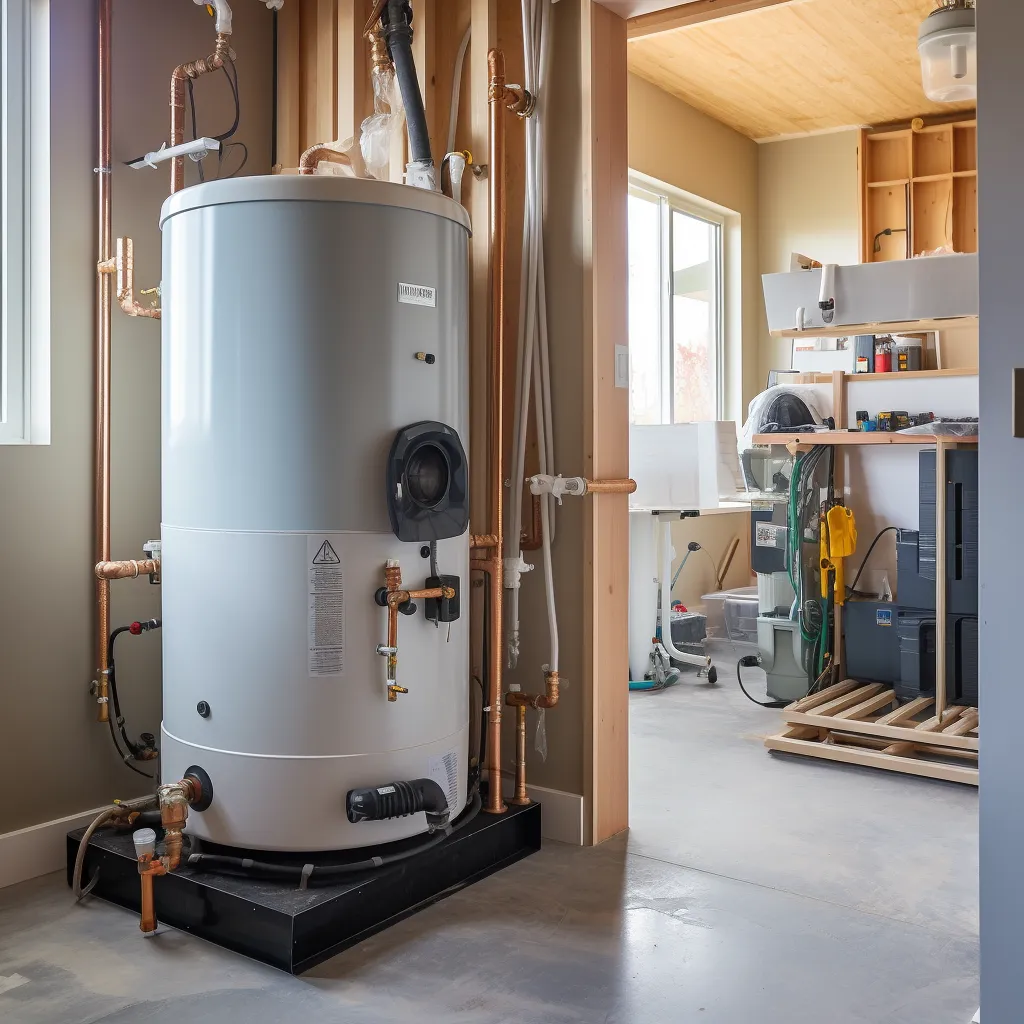
Water heaters come in various types like tankless and traditional tank models. The cost of these types depends on their size and energy efficiency ratings.
In general, bigger water heaters tend to cost more because they can hold more water.
Some additional features, such as automatic shutoff valves or pressure relief valves, may increase the total cost of replacement.
The price to install a water heater can differ depending on factors like the project's difficulty, the additional materials needed, and whether new pipes or venting systems are necessary.


Replacing with energy-efficiency in mind
Opting for an energy-efficient water heater can have significant advantages:
Lower energy costs: Installing a new water heater can help you save money on your monthly utility bills. With advanced energy-efficient technology, modern water heaters consume less power, resulting in reduced energy expenses. By upgrading your old, inefficient water heater to a new, more efficient model, you can enjoy significant savings on your utility bills.
Enhanced comfort: Energy-efficient water heaters are designed to deliver a steady and pleasant stream of hot water, guaranteeing a dependable source and perfect temperature to meet your requirements.
Durability: Energy-efficient water heaters are designed with top-notch materials and cutting-edge technology, making them incredibly long-lasting and dependable for extended periods of time.
Helps environment: Choosing an eco-conscious water heater is a great decision for the environment. By opting for an eco-friendly model, you'll be reducing your carbon footprint and making a positive impact on the planet. These water heaters are designed with energy-efficient features that help to minimize energy consumption and reduce greenhouse gas emissions. With an eco-conscious water heater, you can enjoy hot water while also contributing to a sustainable future.
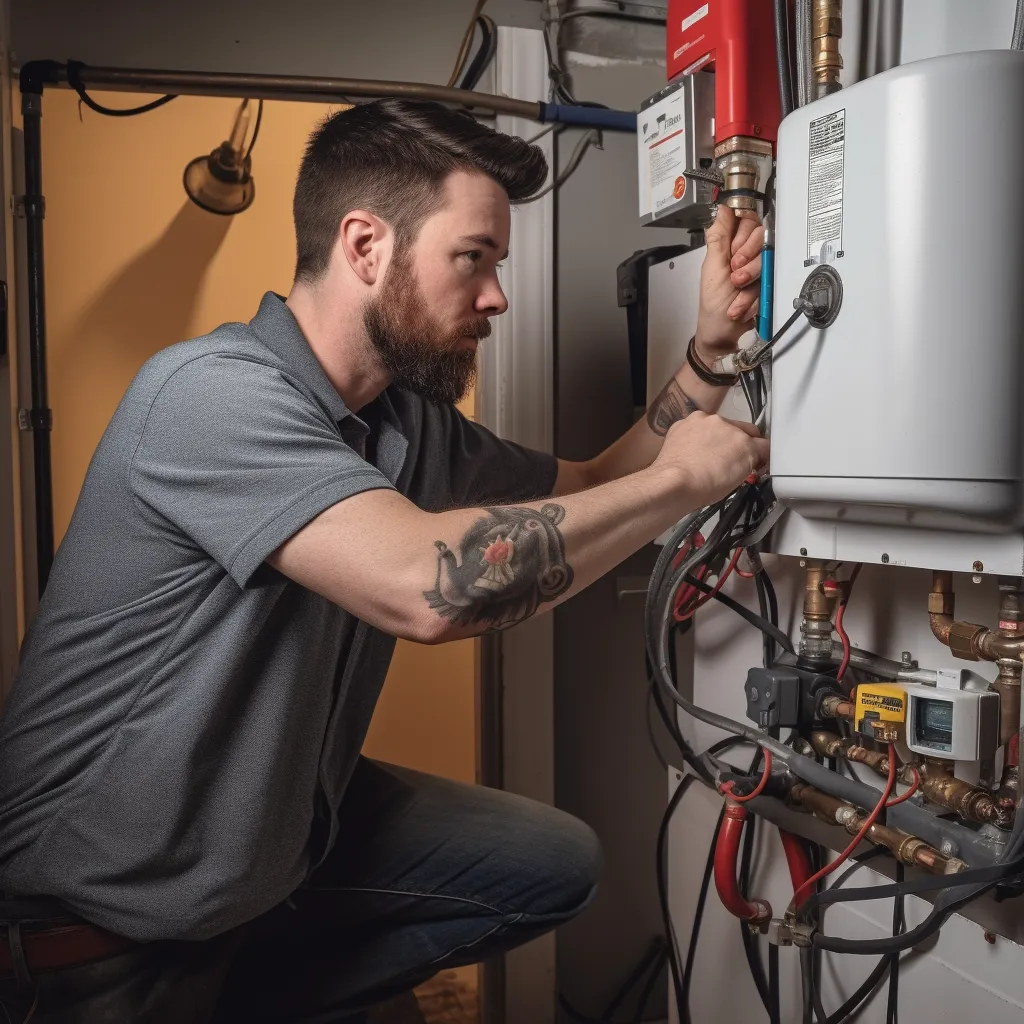
Ways to determine the right size water heater for your home
Determining the right size of water heater for your home is crucial to ensure an adequate supply of hot water. Here's a simple guide on how to calculate the size you need:
Identify your peak hot water usage: Consider the number of people in your household and their hot water habits. Determine the approximate number of simultaneous hot water activities, such as showering, running appliances, or using multiple faucets.
Calculate the gallons per minute (GPM) required: Each hot water activity has a specific GPM rate. For instance, a typical shower uses around 2-2.5 GPM, while a dishwasher may require 1.5-2.5 GPM. Add up the GPM rates of all simultaneous activities.
Determine the temperature rise: Find out the average temperature of the incoming cold water in your area. Subtract this from the desired hot water temperature. The result is the temperature rise required.
Calculate the required BTUs: Multiply the GPM by the temperature rise, then multiply the result by 8.33 (the weight of one gallon of water) to obtain the required BTUs (British Thermal Units) per hour.
Select an appropriate water heater: Check the specifications of different water heaters to find one that meets or exceeds the required BTU output calculated in the previous step.


Learn about the different kind of water heaters
When picking a water heater for your house, there are different options to consider. Traditional tank water heaters have a big tank that stores hot water and keeps it heated until you use it. On the other hand, tankless water heaters heat water instantly as you need it, without any storage tank. Hybrid water heaters combine features of both tank and tankless systems. They provide energy-efficient operation and a continuous supply of hot water. Solar water heaters use the sun's energy to heat water, reducing the need for traditional energy sources. Heat pump water heaters extract heat from the air or ground to warm the water. This makes them energy-efficient and cost-effective. By considering your household's specific needs, energy efficiency goals, and budget, you can find the best water heater for your home.
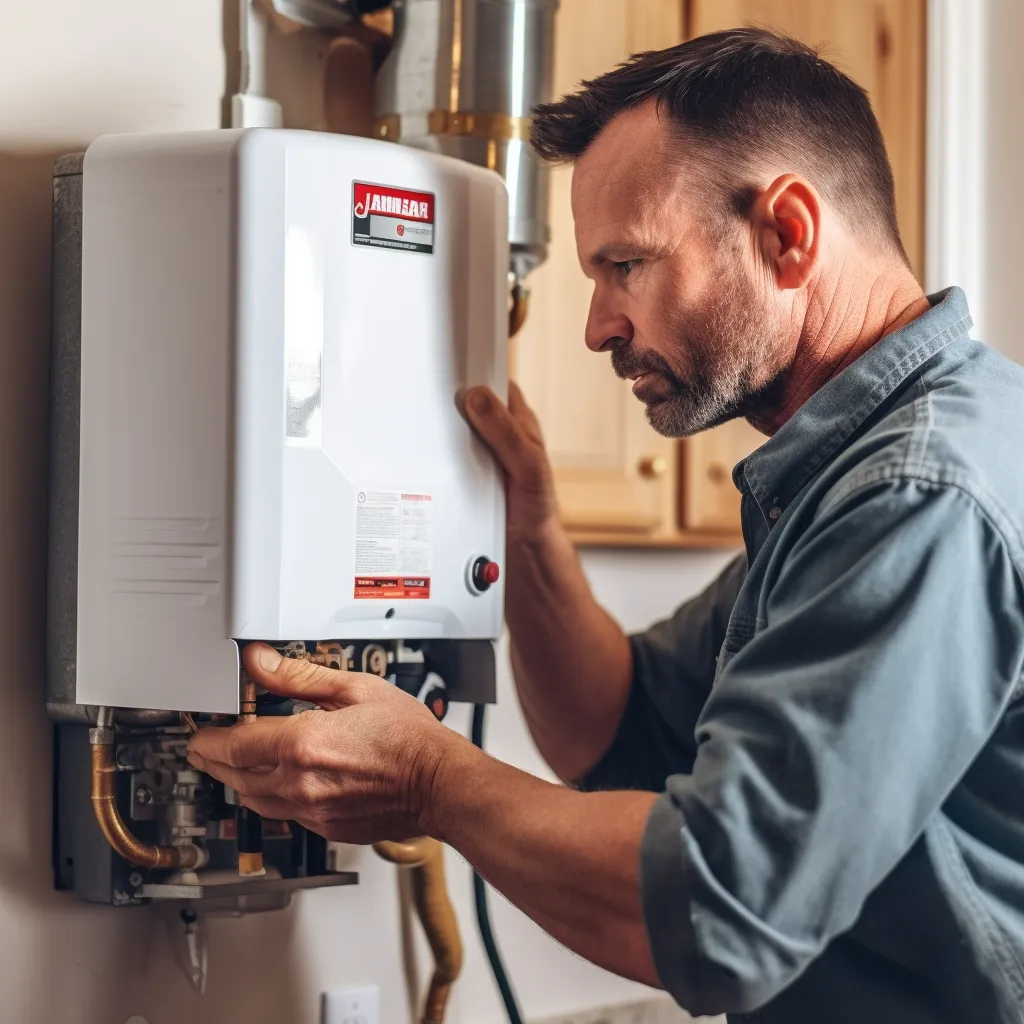
What does each type of water heater cost?
The cost of each type of water heater can vary depending on various factors. It's important to understand the differences and consider your specific needs before making a purchase. Here is a breakdown of the costs associated with different types of water heaters:
Conventional Storage Water Heaters: Conventional storage water heaters, also known as tank water heaters, are the most common type of water heater. They store and heat a large amount of water in a tank for later use. The cost of these water heaters can range from $500 to $1,500, depending on their size, energy efficiency, and brand.
Tankless Water Heaters: Tankless water heaters, as the name suggests, do not have a storage tank. They provide hot water on demand by heating it as it flows through the unit. Tankless water heaters typically have a higher upfront cost, ranging from $1,000 to $3,000, but they can be more energy-efficient and can save you money in the long run due to lower energy consumption.
Heat Pump Water Heaters: Heat pump water heaters use electricity to transfer heat from the surrounding air or ground to heat the water. They are more energy-efficient compared to conventional storage water heaters. The cost of heat pump water heaters can range from $1,200 to $3,000, depending on their capacity and features.
Solar Water Heaters: Solar water heaters utilize the sun's energy to heat water. They have a higher upfront cost due to the installation of solar panels and other components. The cost of solar water heaters can vary significantly depending on the size, type, and installation requirements. On average, the cost can range from $3,500 to $7,000 or more, but they can provide significant long-term savings on energy bills.
Cost of installation and ongoing maintenance

The cost of installing and maintaining a water heater can vary depending on several factors:
The installation cost typically includes the price of the unit itself, any necessary plumbing or electrical work, and the labor involved in the installation process.
Ongoing maintenance costs may include regular inspections, cleaning, and occasional repairs or replacement of parts. It is important to regularly maintain your water heater to ensure it operates efficiently and effectively, which can help prolong its lifespan and prevent costly breakdowns.
While the initial installation cost can be a significant investment, regular maintenance can help minimize unexpected expenses in the long run.
It is recommended to consult with a professional to determine the specific costs associated with installing and maintaining a water heater tailored to your needs.
While the initial installation cost can be a significant investment, regular maintenance can help minimize unexpected expenses in the long run. It is recommended to consult with a professional to determine the specific costs associated with installing and maintaining a water heater tailored to your needs.
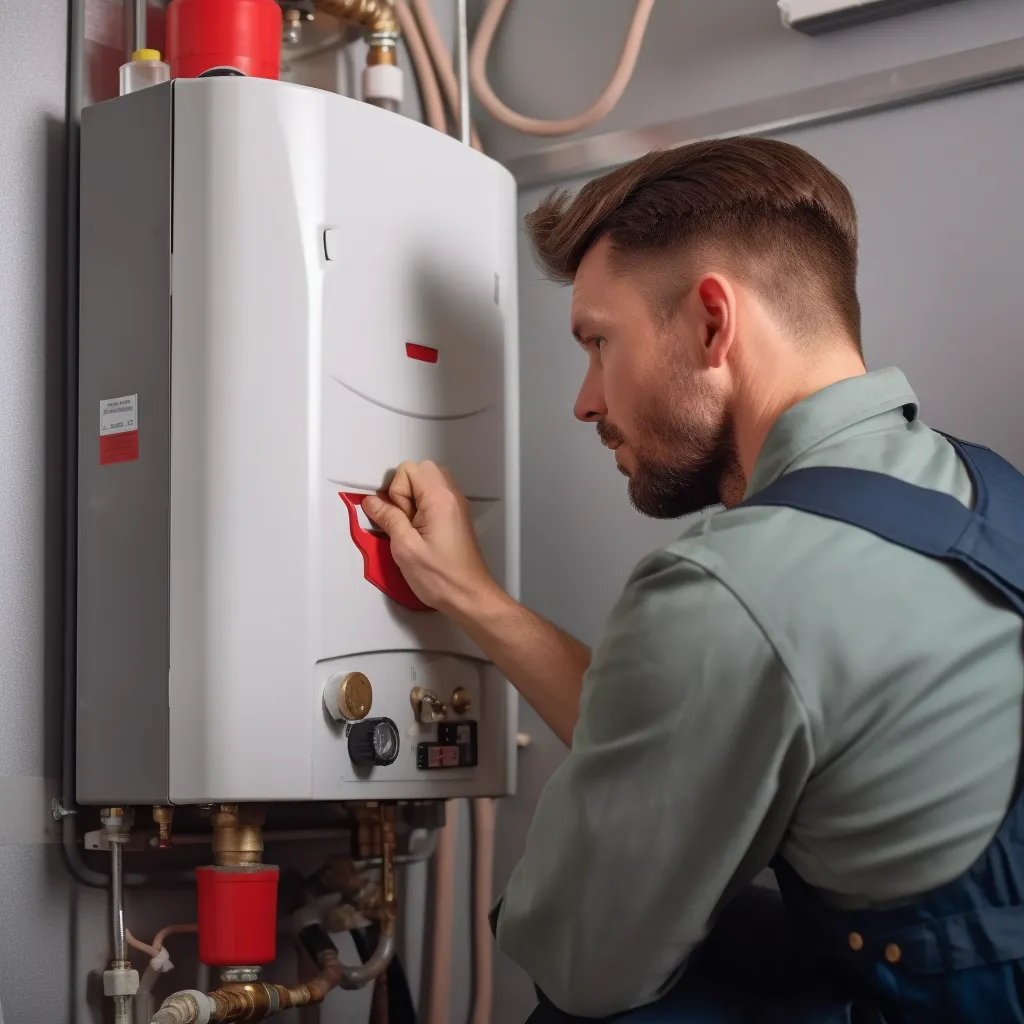
How to get an accurate estimate for the cost of a water heater
If you're looking to find out the cost of a new water heater, there are a few steps you can take to get an accurate estimate:
When choosing a water heater for your home, it's important to consider factors like the size of your household and how much hot water you typically use. This will help you determine the right size and type of water heater that will meet your needs effectively.
Get estimates from nearby plumbing businesses to determine the expenses involved in installing or upgrading your water heater system.
When you're shopping for a water heater, it's important to factor in the overall cost. This includes the price of the water heater itself, as well as any warranties or additional features that might be necessary. Don't forget to consider these expenses in order to make an informed decision.
Ways to save money on installing a new water heater
Looking to save money when installing a new water heater? Here are some valuable tips to keep in mind:
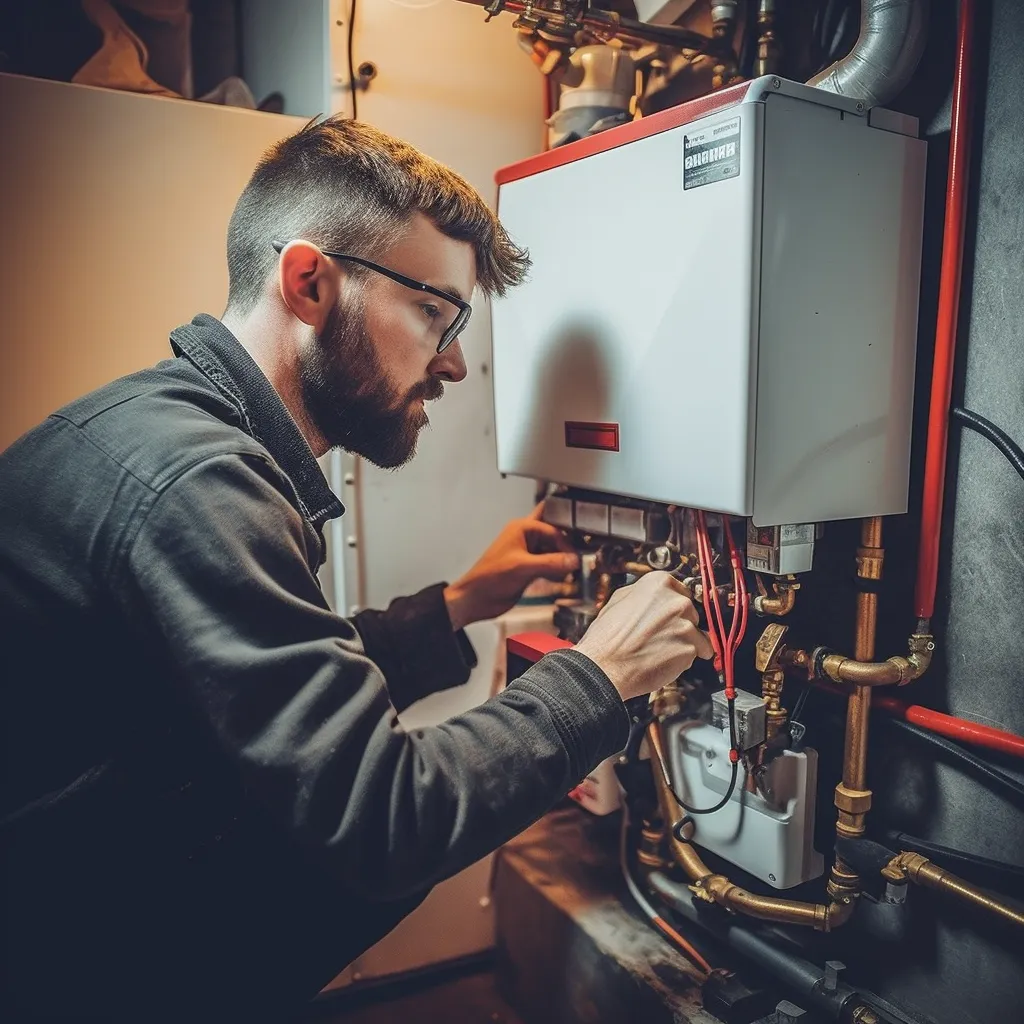
Shop around for the best deal: Take the time to research different water heater types and brands. Compare prices from multiple retailers or suppliers to find the most cost-effective option.
Choose the right size: Installing a water heater that is too large for your needs can lead to wasted energy and higher bills. Make sure to determine the appropriate size based on your household's hot water consumption.
Consider energy efficiency: Opt for an energy-efficient water heater that can help you save money on utility bills in the long run. Look for products with a high energy efficiency rating, such as an Energy Star certification.
DIY or professional installation: If you have the necessary skills and experience, consider installing the water heater yourself to avoid paying for professional services. However, if you're unsure or uncomfortable with the process, it's best to hire a licensed plumber to ensure a safe and reliable installation.
Explore financing options: Some manufacturers or retailers offer financing options that can spread out the cost of a new water heater over time. This can help make the purchase more affordable and manageable for your budget.
Take advantage of rebates and incentives: Check if there are any government or utility company incentives or rebates available for purchasing an energy-efficient water heater. These programs can provide financial assistance and further reduce your initial costs.
Maintain your water heater: Regular maintenance can prolong the lifespan of your water heater and improve its efficiency. Flush the tank annually, check for leaks, and adjust the temperature settings as needed. By taking care of your water heater, you can avoid costly repairs or replacements in the future.
Steps to take if you need water heater services
If you find yourself in need of water heater replacement services, it's important to take action promptly to ensure you have a functioning and efficient hot water system in your home. Here are the steps you should follow:
Assess the situation: First, determine the signs that indicate your water heater needs replacement. These may include a lack of hot water, leaks, rust-colored water, or strange noises. Evaluate the age of your water heater as well, as older units tend to be less energy-efficient and more prone to problems.
Research and choose a reputable company: Look for a professional plumbing company that specializes in water heater replacement services. Read customer reviews and get recommendations from friends or neighbors who have had their water heaters replaced recently. Make sure the company is licensed, insured, and has a good track record.
Schedule a consultation: Contact the chosen company to schedule a consultation. A technician will assess your current water heater, take measurements, and discuss your specific requirements. They will provide you with information on available replacement options and help you choose a suitable unit.
Obtain cost estimates: Ask the company for a detailed cost estimate for the replacement, including the price of the new water heater and the installation charges. Compare estimates from multiple companies to ensure you are getting the best value for your money.
Schedule the replacement: Once you have chosen a company and received a satisfactory cost estimate, schedule a convenient date for the water heater replacement. Clear the area around your current water heater to provide easy access for the technicians.
Prepare for the installation: Before the scheduled date, consider turning off the power supply and shutting off the water connections to your existing water heater. Clear any obstacles that may hinder the installation process, and make sure the technicians have enough space to work comfortably.
Professional installation: On the appointed day, the technicians will arrive at your home with the replacement water heater and necessary tools. They will disconnect and remove the old unit, install the new one according to manufacturer guidelines, and make necessary connections. They will also test the water heater to ensure it is functioning properly before leaving.
Clean up and disposal: After the installation, the technicians will clean up the work area and dispose of the old water heater in an appropriate manner. They will also provide you with any necessary manuals or instructions for operating and maintaining your new water heater.

Here's what a trustworthy and experienced professional will do
We provide a wide range of water heater services that are designed to meet all of your needs. Whether you need installation, repair, or maintenance services, we have got you covered. Our team of experts is highly skilled and experienced in handling all types of water heaters. We understand the importance of having a reliable and efficient water heater in your home, which is why we strive to deliver top-notch services to ensure your satisfaction. No matter what issue you're facing with your water heater, we have the expertise to fix it quickly and effectively. Trust us to keep your water heater running smoothly and efficiently.
Our expert team will evaluate your water heater to determine if it needs to be fixed or replaced.
You will receive a thorough estimate from our team that covers everything - labor, materials, and taxes.
We're here to help you choose the right water heater for your needs. We'll take into account factors like size, efficiency, and cost to find the perfect fit for you.
Our skilled technicians will take care of everything when it comes to installing your new water heater. They will smoothly handle removing the old unit and setting up the new one for you.
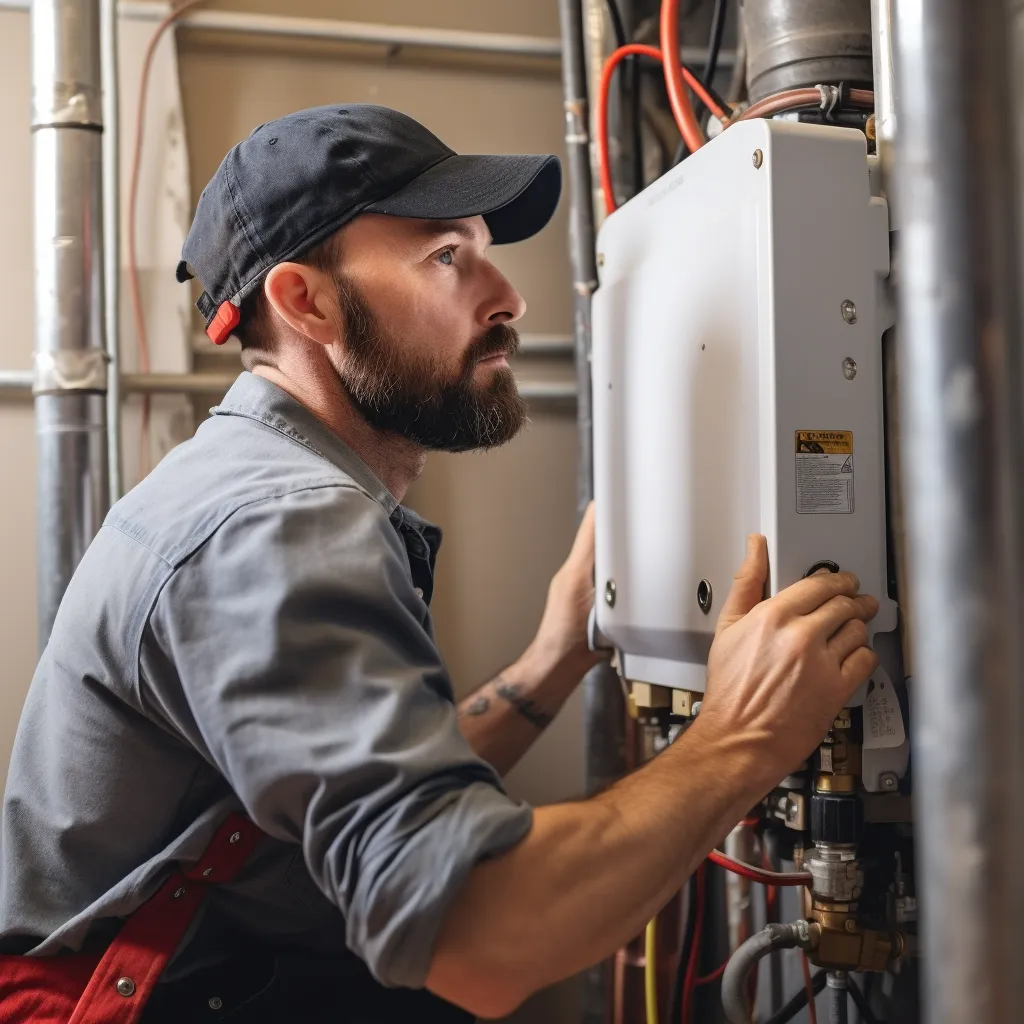
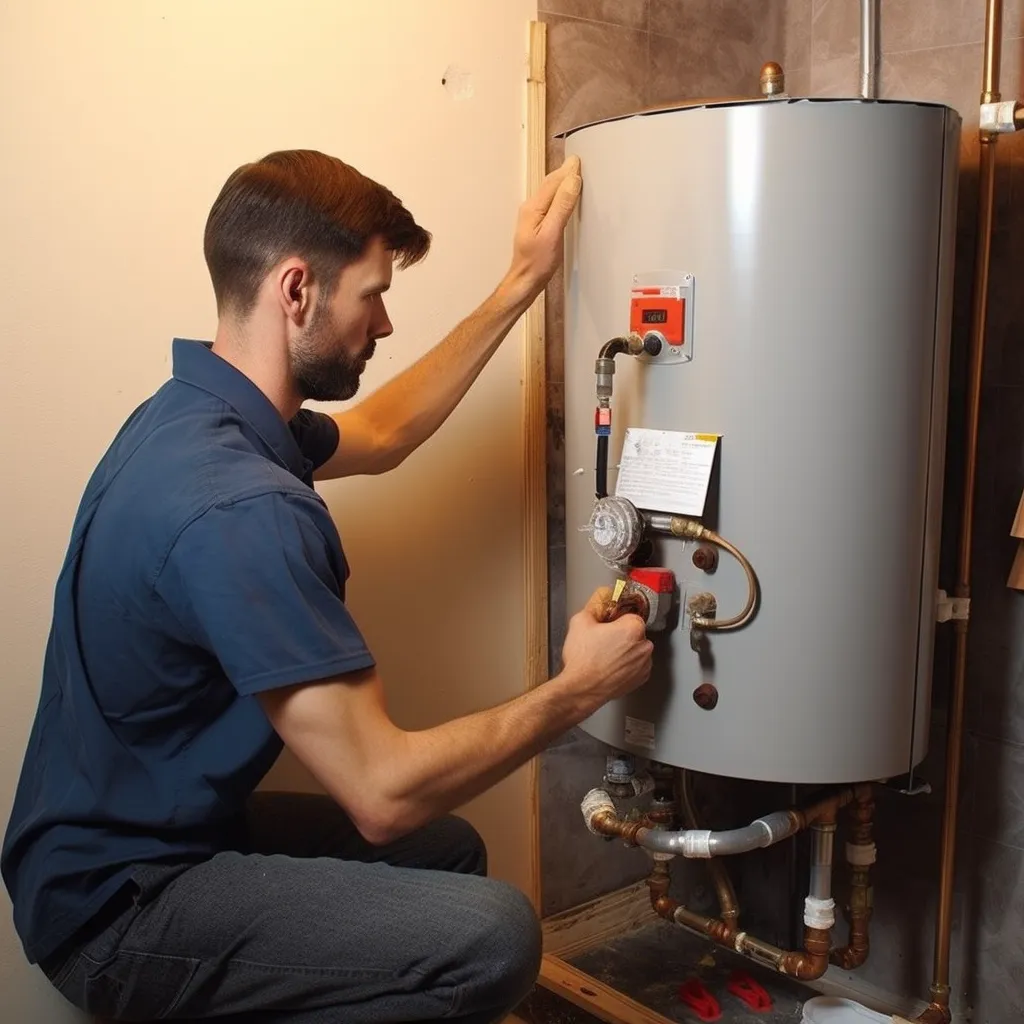
Water heaters have a limited lifespan
It's important to know when to replace or maintain your water heater. Water heaters usually last between 6 and 12 years, depending on how much you use it and how efficiently it works. When you're thinking about getting a new one, there are a few things that affect the cost. These include the type and size of the water heater, the fees for installation and maintenance, and any savings you might get from rebates, incentives, or extended warranties. It's a good idea to do some research and compare different water heater models before making a decision. Talking to a licensed professional can also be helpful and might save you time and money in the long run.
Contact Us
